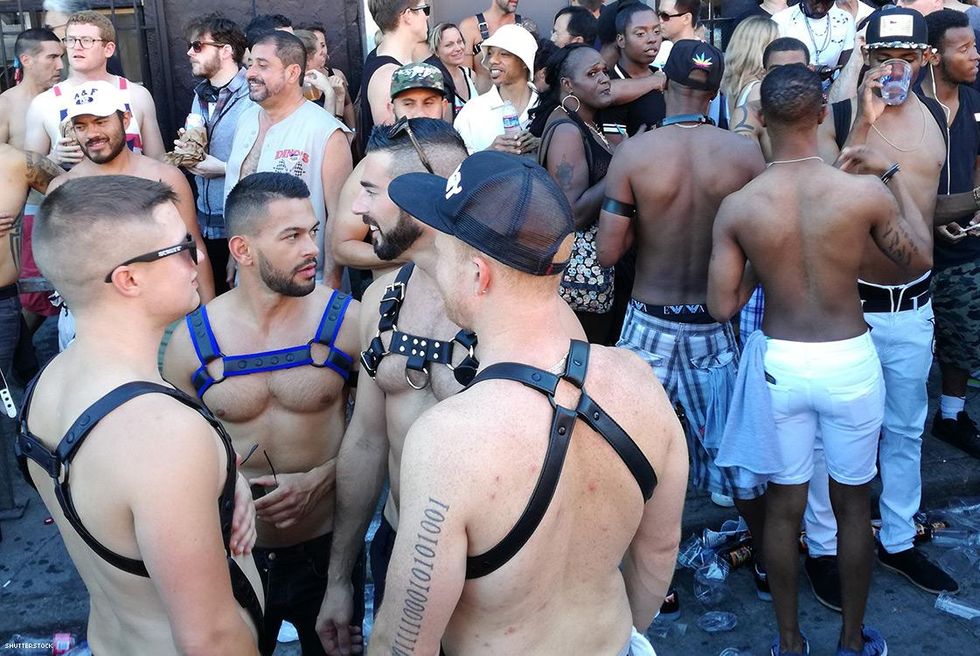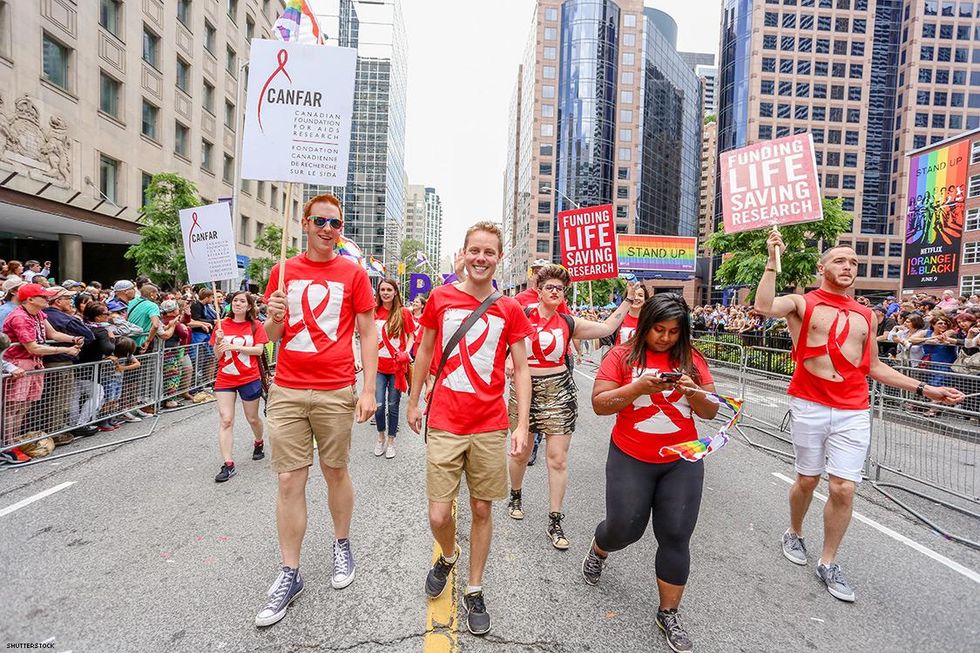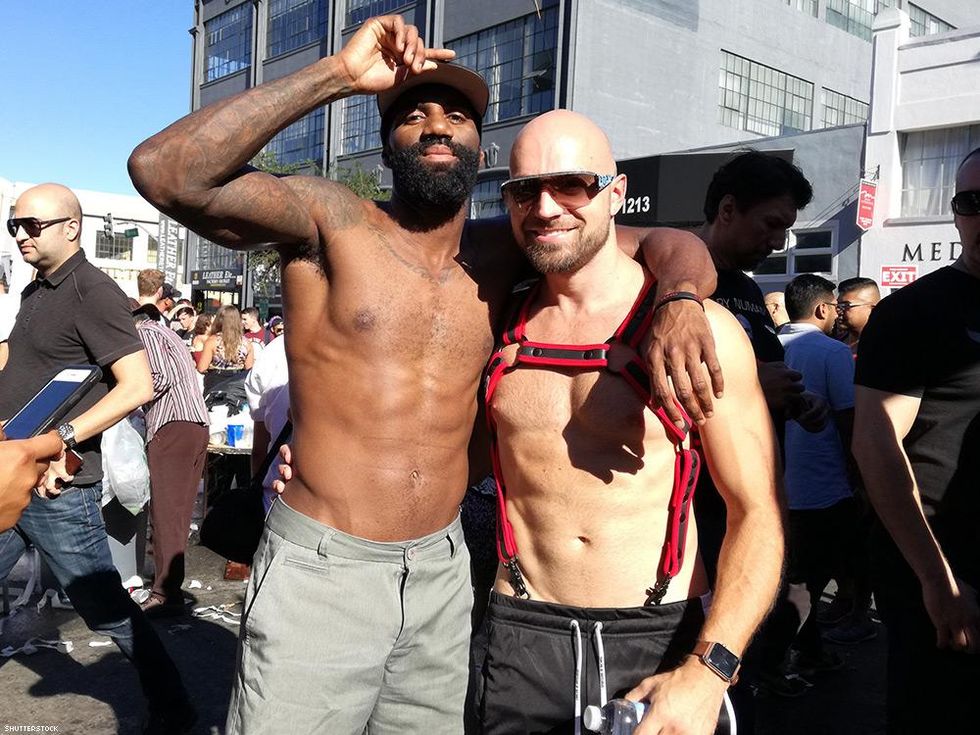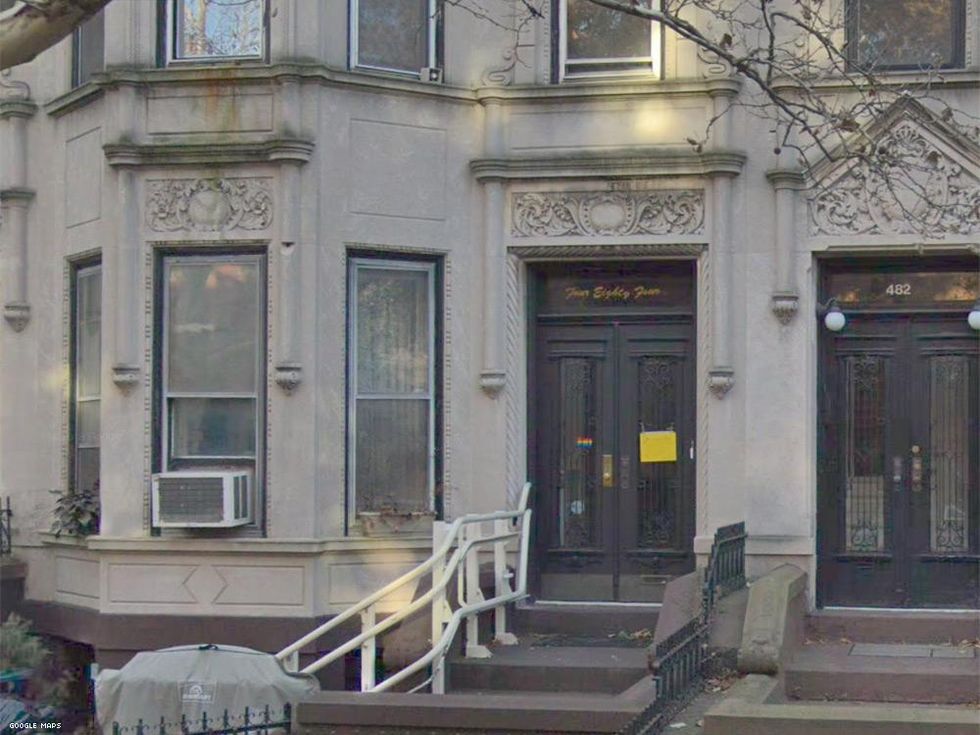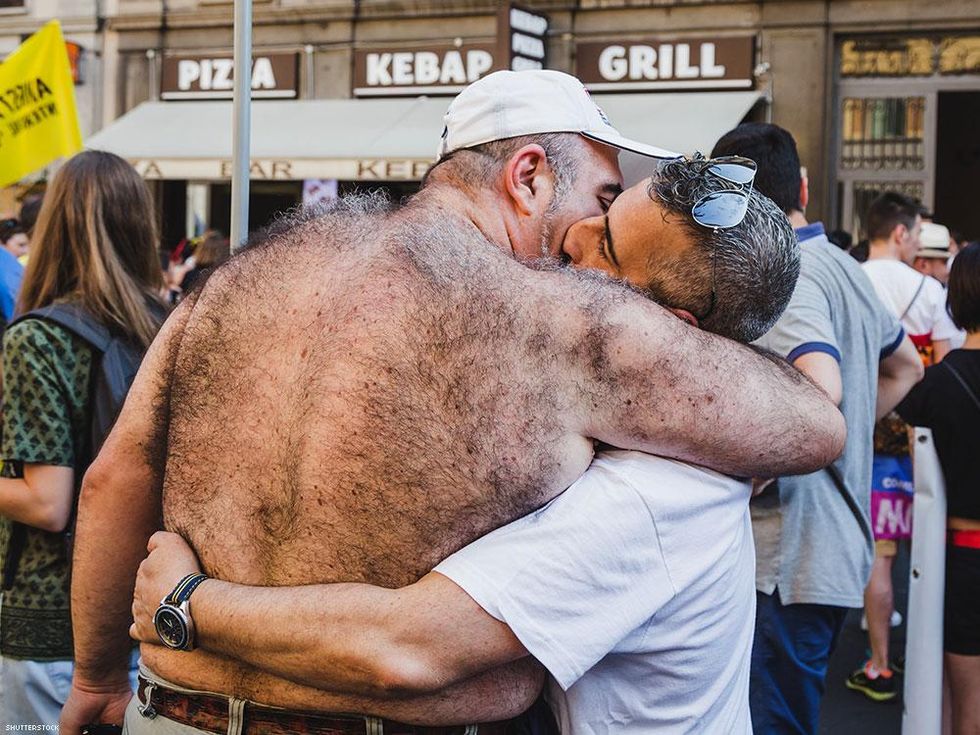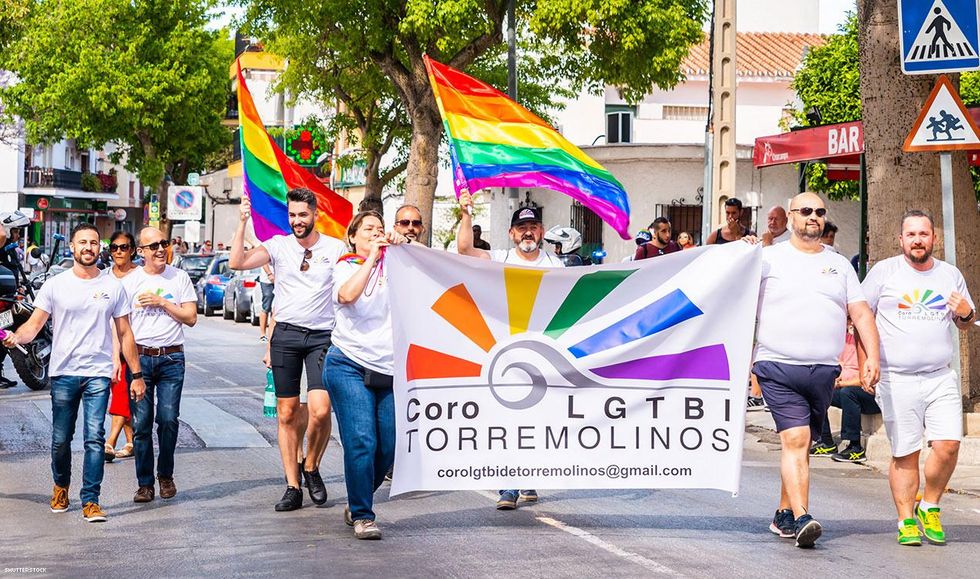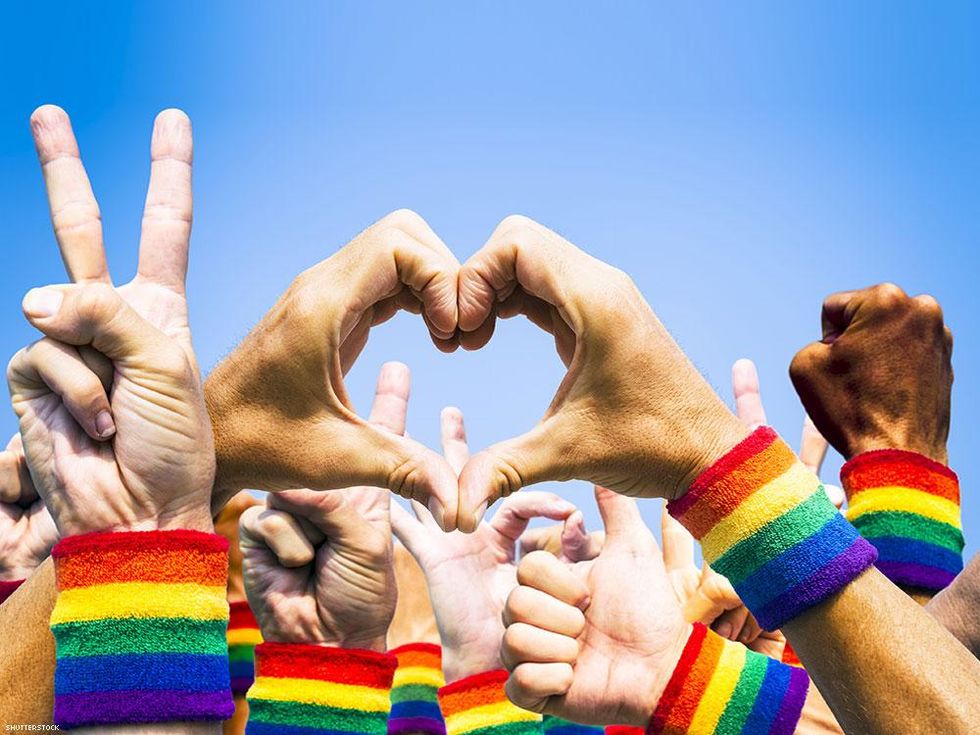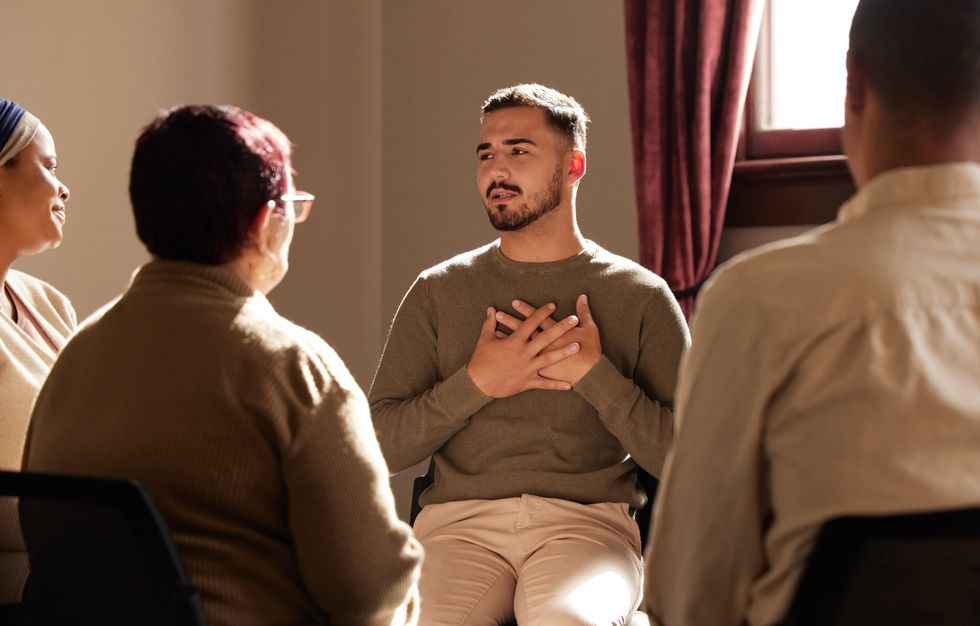High school can be tough, especially when you're closeted, but these seven things can make getting through it a little easier.

Shutterstock
I went to high school in a conservative suburb in Ohio. Coming out never really seemed like an option, even when it felt like everyone knew anyway. I knew my parents and closest friends wouldn’t care, but many of my classmates and several teachers made their negative feelings about LGBTQ+ people clear, and it was more practical for me to ride out four years in the closet than to deal with bigotry from people who didn’t even matter to me.
There are a lot of reasons to stay in the closet in high school. It doesn’t mean you’re not brave. You have no obligation to fight on behalf of all LGBTQ+ people when you’re in a vulnerable position. If you want to come out, come out. If you don’t, don’t. It’s a decision we all should be able to make in our own time.
In the meantime, while you’re trying to get through high school, here are seven ways to make surviving in the closet a little easier!
Find your tribe

Shutterstock
There are other people out there who identify the way you do, and there’s a lot you can learn from them. There’s also a lot you can do to support each other, and sometimes that’s more than enough. High school is hard to navigate as it is, and it can be difficult to remember that everyone is going through something. Bullies bully because they’re hurting, and homophobes exist because they’re often hiding aspects of themselves that they’re too afraid to show. Find the people who love and support you, no matter what, and stick with them.
Do something you enjoy

Shutterstock
Are you an artsy/creative type working on a book/TV show/musical/instrument etc? Or maybe a science fan looking for the next big cure? Even though we’re so much younger than we even realize in high school, it’s still the perfect time to dream big and give yourself some ambition. If you’re struggling, this can be especially useful, as it always gives you something to continue working for. Find something that brings you joy and let that passion guide you.
If you have access to a therapist, get one

Not everyone will have access to a therapist in high school, but if there’s any way to see one, do it. Health insurance and parents who are anti-therapy can be prohibitive, so you may have to research LGBTQ mental health resources on your own. You don’t have to feel overwhelmingly depressed or anxious to benefit from a weekly conversation with a mental health professional. You don’t have to tell your parents you’re LGBTQ either. You might ask them to let you see a therapist to help you with time management before you go to college. Or to help with anxiety about social situations so you can be more outgoing at school. Or to help you cope with the loss of a pet or a family member. Don’t feel guilty about using the line you think will work.
The great thing about having a therapist when you’re in the closet is a little thing called HIPAA (the Health Insurance Portability and Accountability Act), which guarantees you confidentiality as long as your therapist isn’t concerned that you have a plan to harm yourself or others. That means you can talk to your therapist about your gender or sexual orientation without worrying that they’ll tell your parents.
Connect to other LGBTQ+ teens online

Social networking sites and blogs can be a great place to find other LGBTQ+ teens who are going through the same thing you are. You can remain more anonymous by using a separate email account and a different username. Use internet safety common sense—don’t meet up with people alone or who can’t provide some proof of who they are, don’t give out your address or the name of your school, and cut off anyone who makes you feel uncomfortable or who demands something you’ve already said no to. Monitored sites like TrevorSpace are a safer option.
Avoid students who say negative things about LGBTQ+ people

While laughing at gay jokes might be one way to throw people off the trail, it definitely won’t do anything for your mental health. Surround yourself with friends who have positive or neutral views toward LGBTQ+ people, and avoid students who make derogatory comments. You don’t have to come out to your friends in high school, but just knowing that they would accept you if you did can impact the way you feel about yourself.
Take in as much LGBTQ+ media as you can

Sometimes you have very limited or controlled access to media, and going out to buy a book with LGBTQ+ characters or watching LGBTQ+ TV shows or movies just isn’t an option. But whenever possible—whether it’s reading articles online, hiding out in a corner of the library with a queer book, or downloading a movie or TV show where you can see someone like you represented—try to take in media that present LGBTQ+ people in a positive way. Remind yourself that there is a world outside your hometown and high school. There’s a world outside your parents’ house. And it’s not a perfect world, but it is full of LGBTQ+ people who are living their lives in just about every imaginable way.
Plan for the future

While the thought behind It Gets Better is nice, I always felt in high school (when it felt like nothing would ever get better) that it was a little condescending. Now I realize that when it does get better, it’s because we’re making it better. We’re choosing to go to colleges that support LGBTQ+ students, and when we get there we’re fighting for even more inclusion. When we can, we’re choosing to work for places where our sexual orientation or gender is a non-issue. We’re choosing to move to cities that have better LGBTQ+ policies and thriving communities. When older LGBTQ+ people say, "It gets better," they’re not saying everything will fall into place the second you move out of whatever podunk town you’re from. They’re saying that you’ll have more choices. That’s the part that gets better.
And yes, some people will always have more choices than other people. It gets better a lot faster if you have the money to go to college, or to move, or to turn down a job you’re not passionate about. It gets better faster if you have certain privileges. But while you’re still in high school, while you’re still in the closet, use that time to plan. Figure out what your challenges are going to be. Set small goals, and build up to goals that seemed impossible. Don’t spend all your time listening to Bright Eyes—or whatever all the sad kids are listening to these days—and crying in your room (like I did). Instead, figure out the life you want to have, figure out a few realistic backup plans that may not be quite as exciting but that you could live with, and then take the steps you need to take to ensure you can hit the ground running when you graduate.
It doesn’t get better all at once. Sometimes it gets better, and then it gets worse, and then it’s sort of okay and you’re kind of hanging on, and then it’s better again. But, the more you go through, the better you’ll get at dealing with the times when it gets worse. So, go ahead and be hopeful. Plan for the future you want. It might not happen exactly the way you want it to, but it sure as hell is going to be better than high school.



























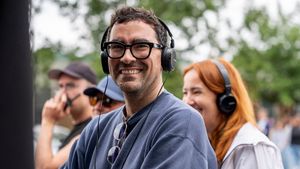

















 A couple kisses in the middle of the street during the Christopher Street Day ; Men seen kissing during the 2023 Pride Barcelona Parade.Yerchak Yauhen/SOPA Images/LightRocket via Getty Images; imone Boccaccio/SOPA Images/LightRocket via Getty Images
A couple kisses in the middle of the street during the Christopher Street Day ; Men seen kissing during the 2023 Pride Barcelona Parade.Yerchak Yauhen/SOPA Images/LightRocket via Getty Images; imone Boccaccio/SOPA Images/LightRocket via Getty Images
